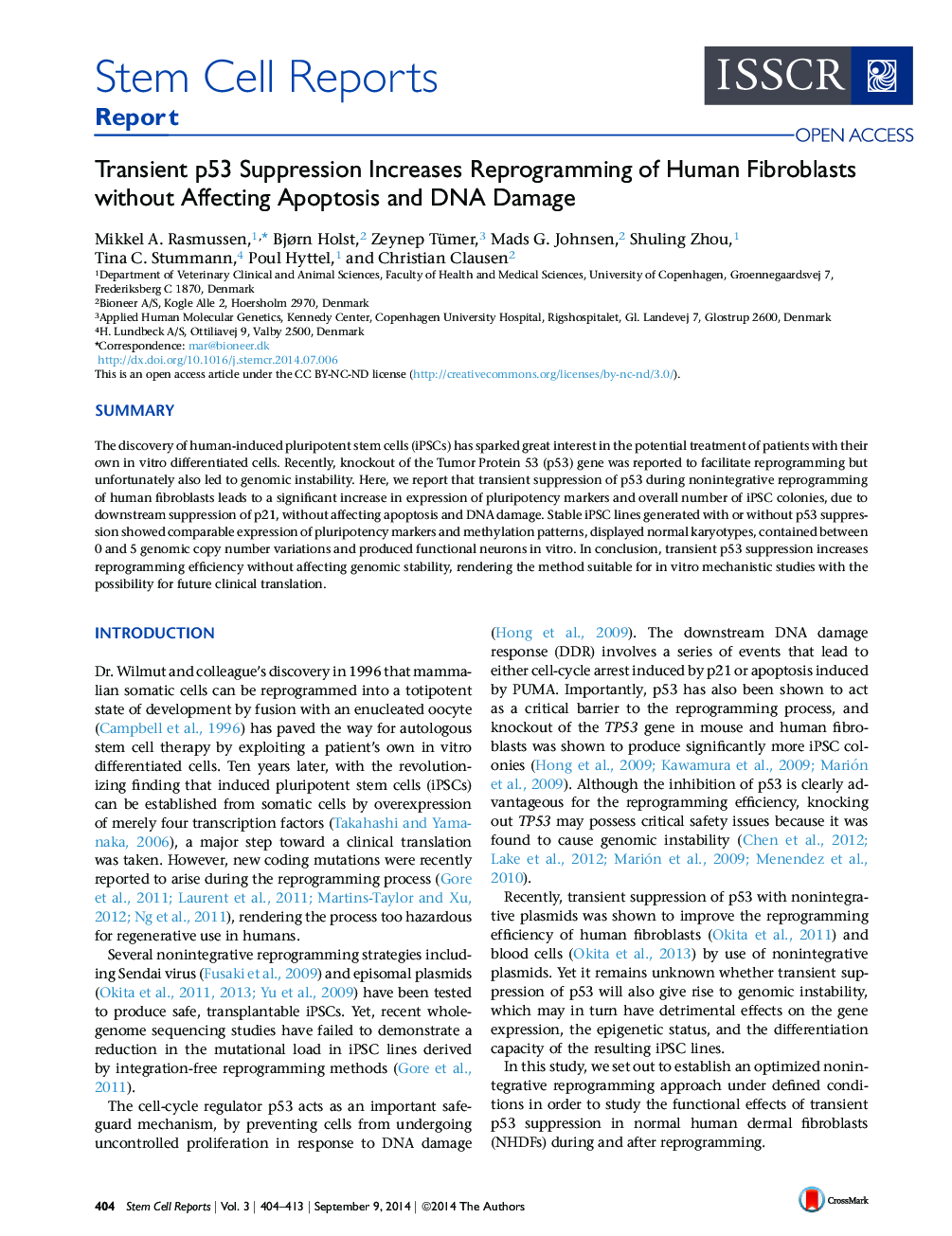| Article ID | Journal | Published Year | Pages | File Type |
|---|---|---|---|---|
| 2093343 | Stem Cell Reports | 2014 | 10 Pages |
•Transient p53 suppression increases reprogramming efficiency through p21 inhibition•No adverse effect on DNA damage and apoptosis is observed during reprogramming•Stable iPSC lines display normal karyotypes and expression of pluripotency markers•The iPSC lines retain their differentiation potential and form functional neurons
SummaryThe discovery of human-induced pluripotent stem cells (iPSCs) has sparked great interest in the potential treatment of patients with their own in vitro differentiated cells. Recently, knockout of the Tumor Protein 53 (p53) gene was reported to facilitate reprogramming but unfortunately also led to genomic instability. Here, we report that transient suppression of p53 during nonintegrative reprogramming of human fibroblasts leads to a significant increase in expression of pluripotency markers and overall number of iPSC colonies, due to downstream suppression of p21, without affecting apoptosis and DNA damage. Stable iPSC lines generated with or without p53 suppression showed comparable expression of pluripotency markers and methylation patterns, displayed normal karyotypes, contained between 0 and 5 genomic copy number variations and produced functional neurons in vitro. In conclusion, transient p53 suppression increases reprogramming efficiency without affecting genomic stability, rendering the method suitable for in vitro mechanistic studies with the possibility for future clinical translation.
Graphical AbstractFigure optionsDownload full-size imageDownload as PowerPoint slide
